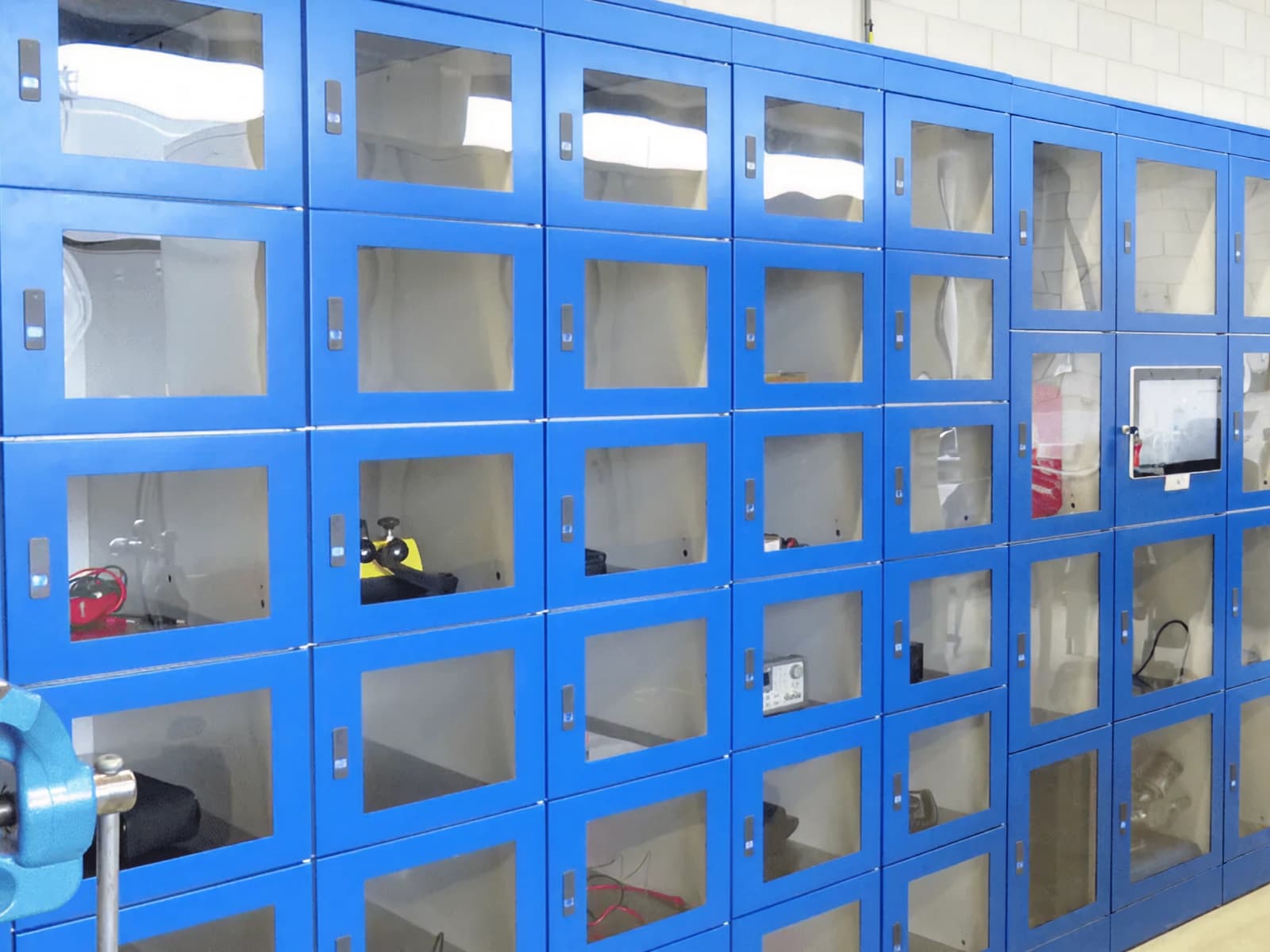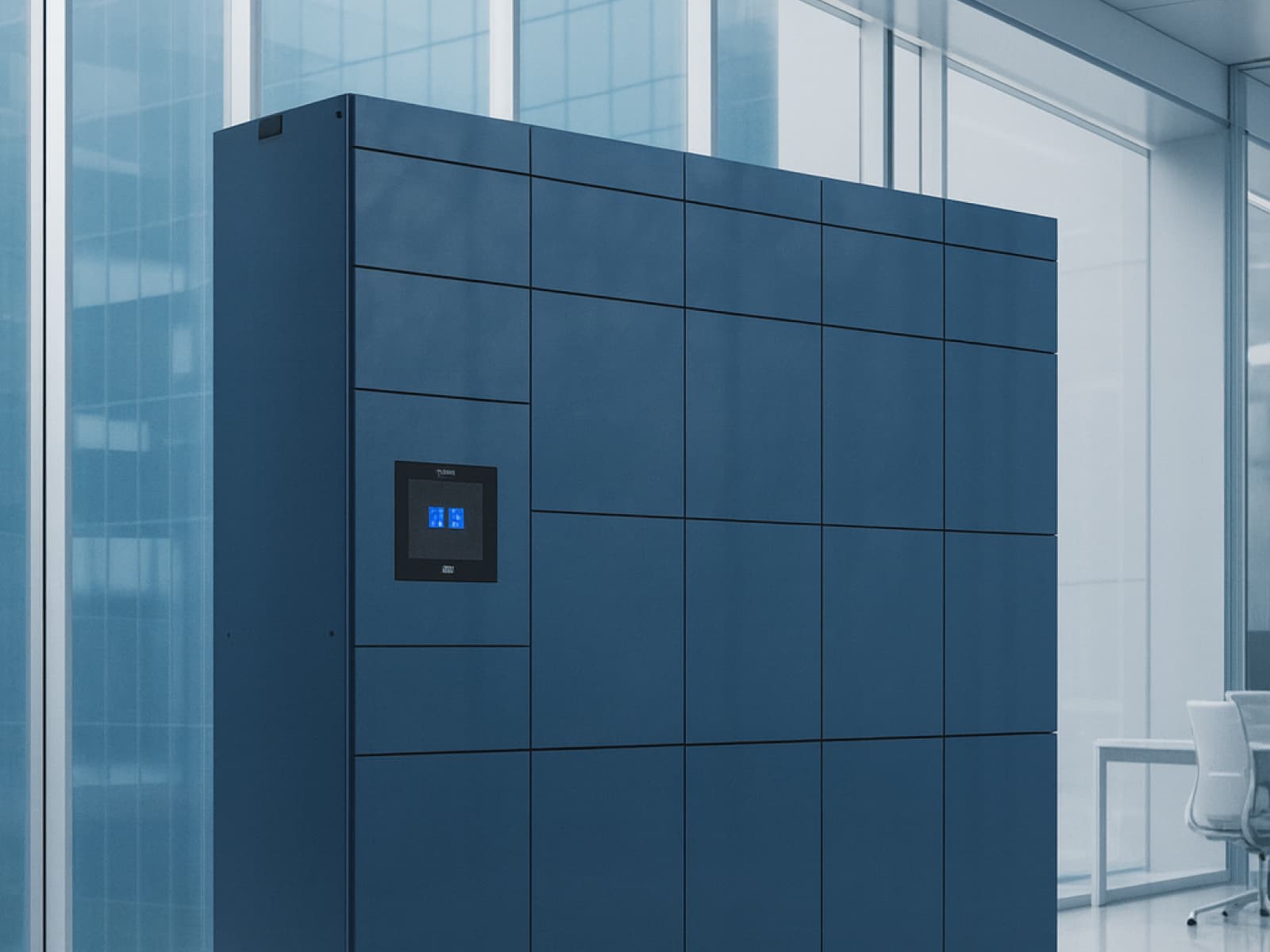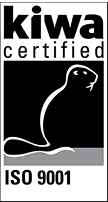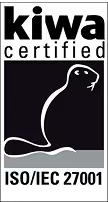The Future of Storage: Locker Solutions for Selling or Renting Products by Keynius
In today's fast-paced world, the storage industry has undergone a remarkable evolution. From traditional warehouses to modern, cutting-edge solutions, the way we store and access our belongings has changed drastically. One such innovation that is revolutionizing the storage industry is the concept of locker solutions.
Understanding the Evolution of Storage Solutions
Over the years, storage solutions have evolved from simple warehouses to more efficient and convenient options. Traditional warehouses offered bulk storage options with limited accessibility. However, as technology advanced, the demand for more accessible and flexible solutions grew.Modern storage solutions have transformed the way we store and retrieve our belongings. With the rise of e-commerce and the sharing economy, there was a need for storage options that catered to these changing dynamics. This gave birth to the concept of locker solutions.Lockers, with their compact and secure design, have become a popular choice for individuals and businesses alike. These lockers provide a convenient and efficient way to store various items, from personal belongings to retail inventory. With their modular structure, lockers can be easily stacked and arranged to maximize space utilization.One of the key advantages of locker solutions is their accessibility. Unlike traditional warehouses where items may be stored in bulk and require time-consuming retrieval processes, lockers offer quick and easy access. Each locker is assigned to a specific user, allowing them to retrieve their items at any time without the need for assistance.
From Traditional Warehouses to Modern Lockers
Gone are the days when we had to rely solely on traditional warehouses for storage. With the emergence of locker solutions, consumers now have a more convenient and secure option. Lockers provide individuals and businesses with a flexible and accessible way to store their products and belongings.Moreover, locker solutions have also addressed the issue of security. Traditional warehouses often lacked advanced security measures, making them susceptible to theft and damage. In contrast, lockers are equipped with state-of-the-art security systems, including surveillance cameras, access control mechanisms, and secure locking mechanisms. These features ensure that stored items are protected from unauthorized access and potential damage.Another significant advantage of modern lockers is their versatility. They can be found in various locations, including shopping malls, airports, train stations, and residential buildings. This widespread availability makes it easier for individuals to access their stored items conveniently, regardless of their location.
The Role of Technology in Storage Solutions
Technology has played a pivotal role in shaping the future of storage solutions. Advanced security systems, seamless tracking mechanisms, and user-friendly interfaces have made locker solutions a preferred choice for many. With the integration of technology, locker solutions offer unparalleled convenience and peace of mind.One of the technological advancements in locker solutions is the implementation of smart lockers. These lockers are equipped with digital interfaces, allowing users to easily manage their storage units remotely. Through mobile applications or online platforms, users can reserve, access, and monitor their lockers with just a few taps on their smartphones.Furthermore, technology has enabled efficient tracking and inventory management within locker solutions. Each locker is equipped with sensors and barcode scanning capabilities, enabling real-time tracking of stored items. This not only ensures accurate inventory management but also provides users with a transparent view of their stored belongings.In conclusion, the evolution of storage solutions from traditional warehouses to modern lockers has revolutionized the way we store and retrieve our belongings. Lockers offer convenience, security, and flexibility, making them an ideal choice for individuals and businesses alike. With the integration of technology, locker solutions continue to evolve, providing users with enhanced accessibility and peace of mind.
Explore Keynius Locker Solutions:
- Paid & Guest Storage
- Personal & Staff Storage
- Asset & Equipment Management
- Parcel
- Click & Collect
- Smart Vending & Dispensing
Explore Keynius Locker Solutions for Various Industries:
- Corporate Workspace
- Sports & Recreation
- Education
- Emergency Services
- Retail
- Healthcare
- Pharmacy
- Public Spaces & Transit
- Industrial & Factory
- Hospitality & Venues
Discover Keynius Locker Products:
Visit Keynius Locker Solutions to unlock the potential.
FAQ about Smart Lockers
How does the Keynius locker system work?
Keynius lockers combine smart electronic locks - smart locks and battery locks - with cloud-based software and optional local controllers via our Smart Home Teacher and Students.
Locks connect via LAN or Bluetooth to the Keynius platform, allowing users to authenticate, open, and manage lockers through touchscreens, RFID, PIN, or mobile app.
Admins control access rights, monitor usage, and configure lockers remotely via the Keynius Portal.
Can I customize the locker design and materials?
Yes. We are the only smart locking provider that owns every part of our supply chain, which includes all components, hardware, cabinetry, and software. This allows us to offer the most customizable smart lockers in the industry.
Lockers are available in multiple materials and colors:
Steel, powder-coated in standard RAL colors.
Wood-based panels with extensive Egger color finishes.
HPL laminate for high-durability indoor/outdoor use.
Outdoor waterproof steel version.
Each locker supports optional side panels, bases, benches, and color branding, or vinyl wrapping, as well as your selection of lock type, connection type, and many other custom add-ons.
Is the platform cloud-based or do I need local servers?
The Keynius platform is fully cloud-managed, requiring no local servers. Hardware like Smart Home Teacher/Student units and Battery Locks connect to the cloud via LAN or Bluetooth and are configured through the Keynius Portal or App.
What authentication/access methods are supported?
Supported authentication methods include:
PIN (capacitive keypad or mobile-assigned)
RFID (MiFare, HID, NFC, Apple Wallet)
Mobile app (BLE) for remote and Bluetooth access
QR code scanning (QR Reader IP65)
Payment terminals can optionally authenticate via debit/credit contactless systems.
How secure is the system and where is the data hosted?
Hardware is certified to CE, FCC, UKCA, and RoHS standards, with IP-rated protection up to IP65 for outdoor units.
Locks feature encryption, motorized mechanisms, and mechanical overrides for fail-safe access.
All data, including access logs and credentials, is stored securely in Keynius’ EU-hosted cloud environment compliant with European data protection standards.
Can Keynius integrate with our existing software?
Yes. The system offers open APIs for integration with HR, facility, payment, or booking systems. Payment terminals support remote configuration through the Terminal API.
View our existing integrations here.
What industries or use cases is Keynius suitable for?
Keynius offers a modular, flexible design which makes it compatible for nearly every industry and use-case.
Our most common sectors include:
- Corporate offices (personal storage, hybrid desks)
- Education (student lockers, IT device storage)
- Logistics and retail (parcel and click and collect)
- Leisure, hospitality, and healthcare (staff or visitor lockers)
What’s included in the setup and onboarding process?
Every project is different and requires its own scope, but we strive to offer a consistent and repeatable solution as much as possible to streamline our effectiveness and the quality of service we're able to deliver.
1. Design phase: Configure cabinet models, lock types, and finishes.
2. Installation: Connect Smart Locks to the Smart Home or cloud (plug-and-play).
3. Software setup: Locker walls created in the Keynius Portal; access rights assigned.
4. Training: Admins and users onboarded via the app guide.
5. Support: Remote monitoring, software updates, and Keynius support line.









%201.svg)
%201.svg)
